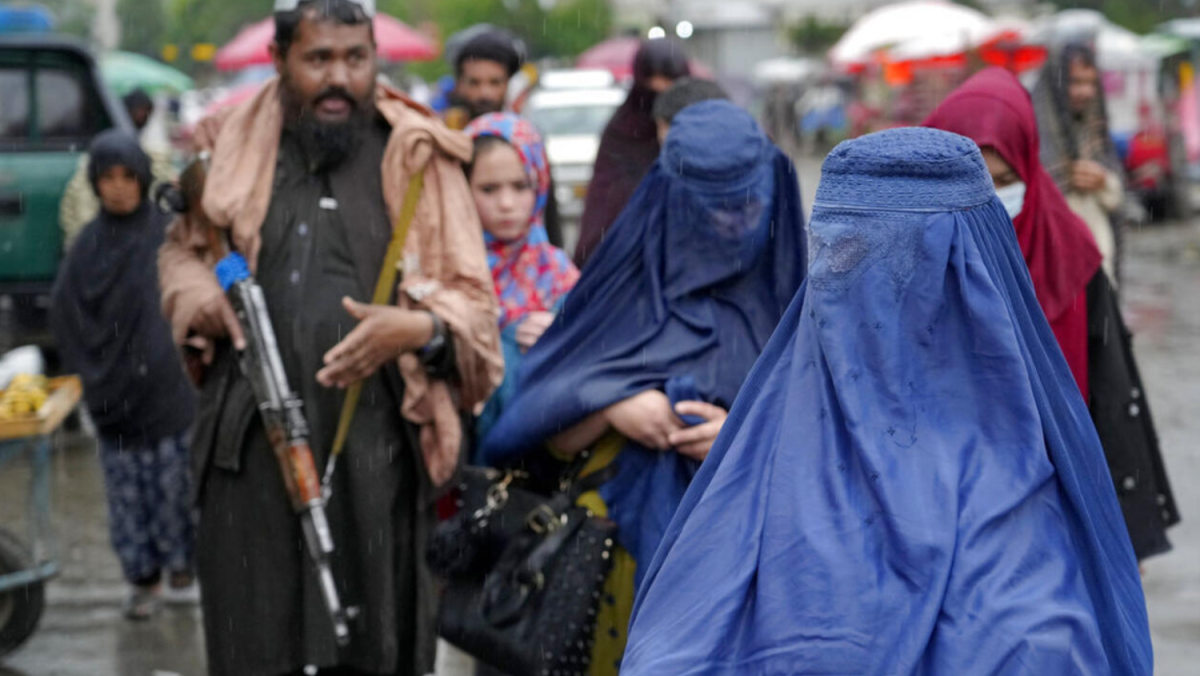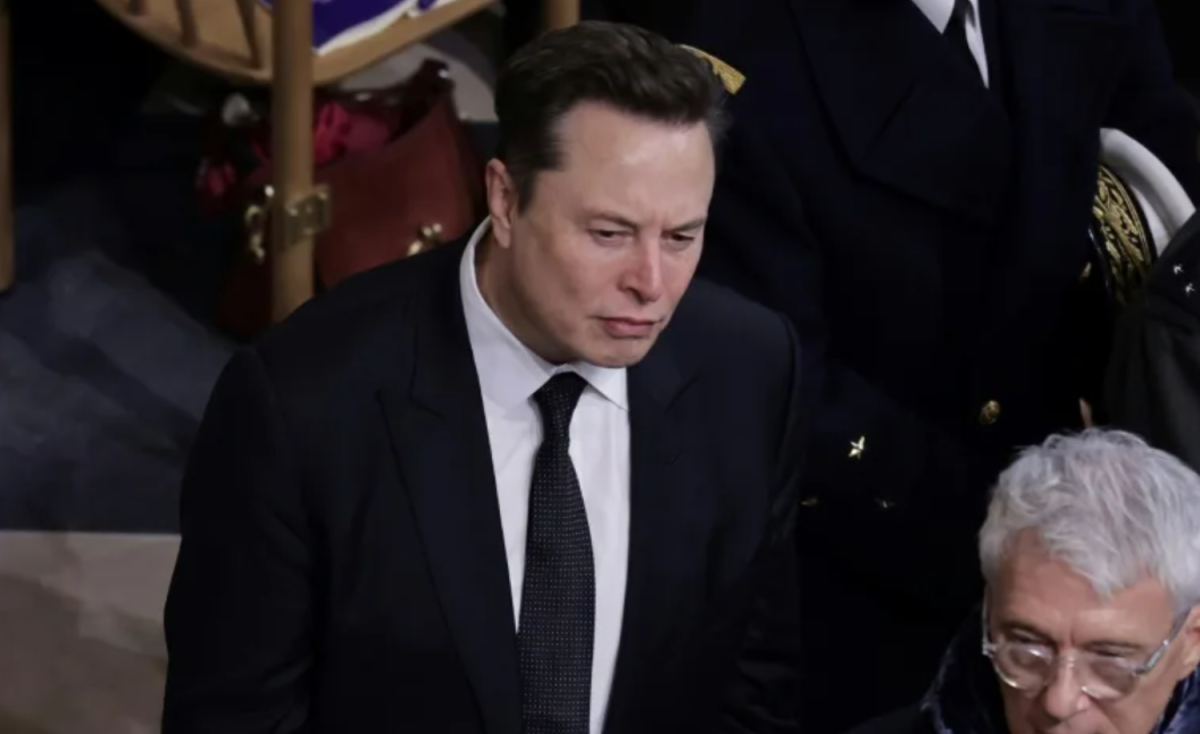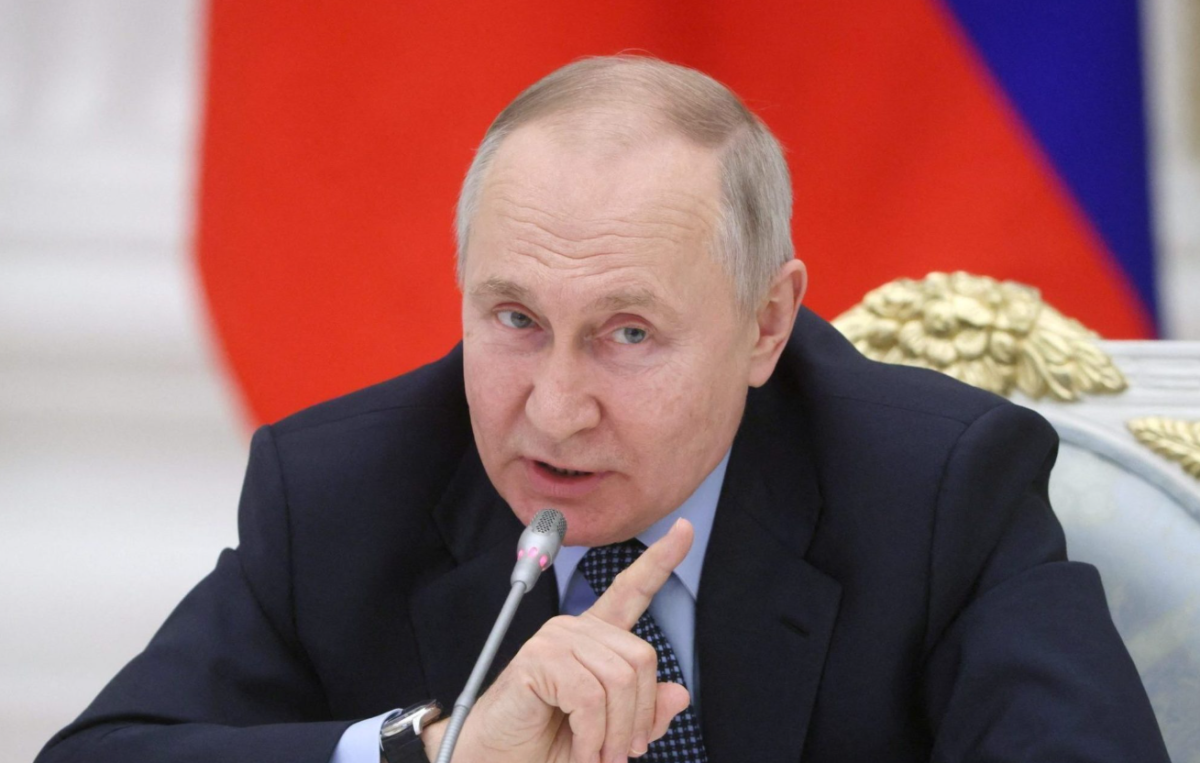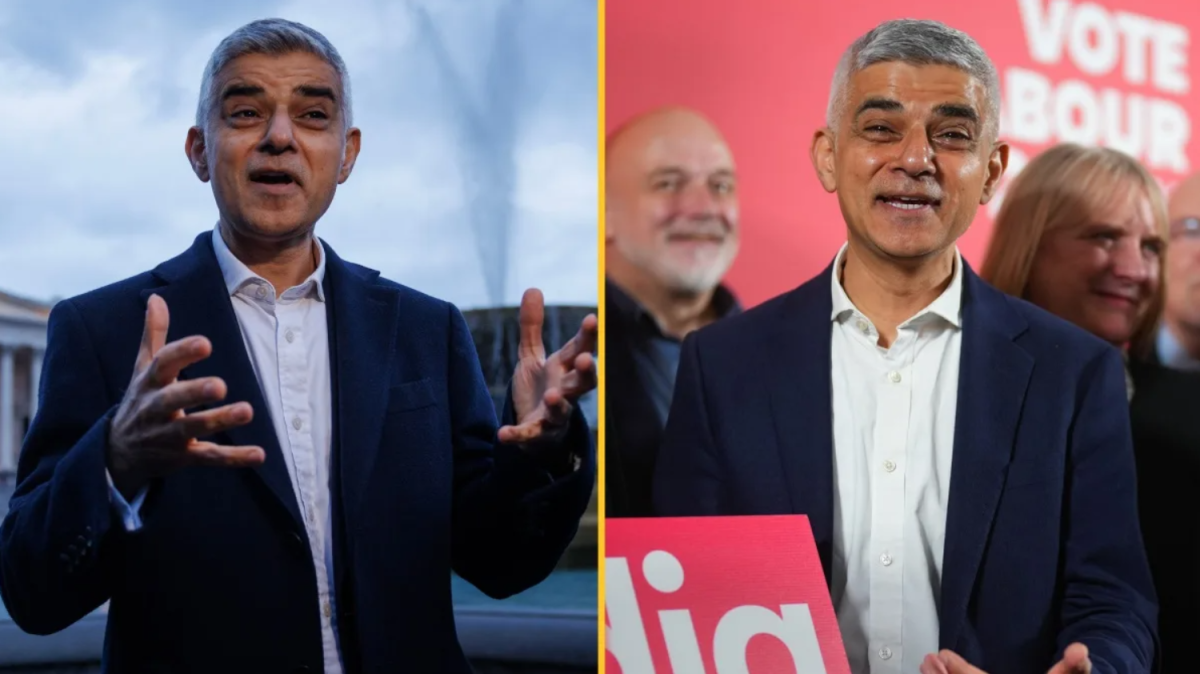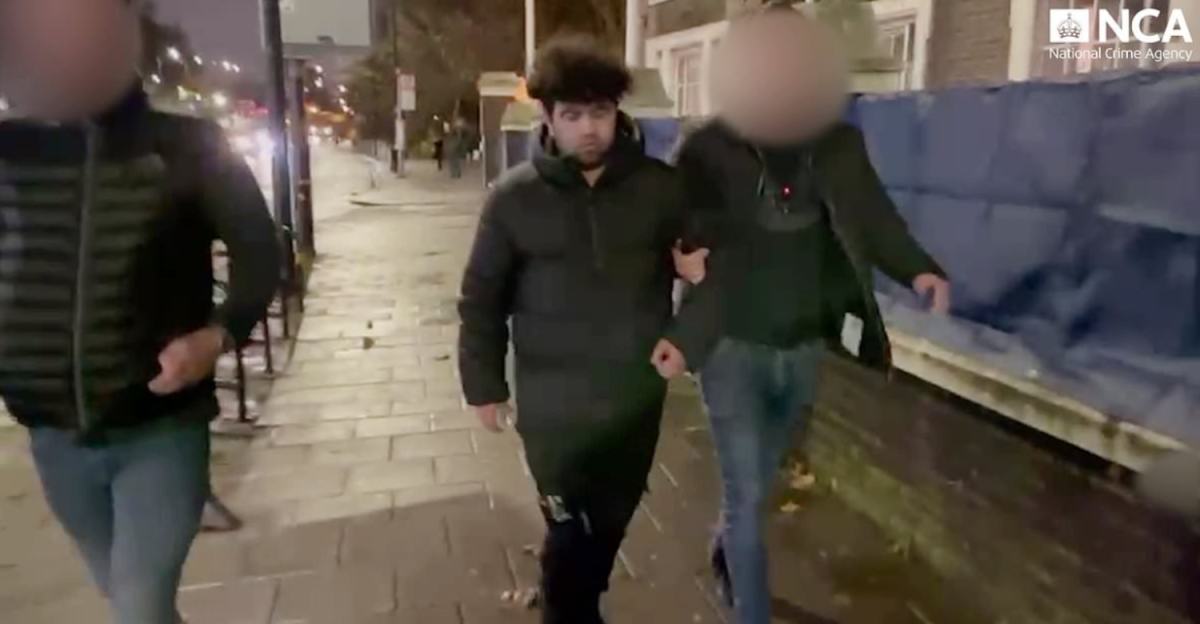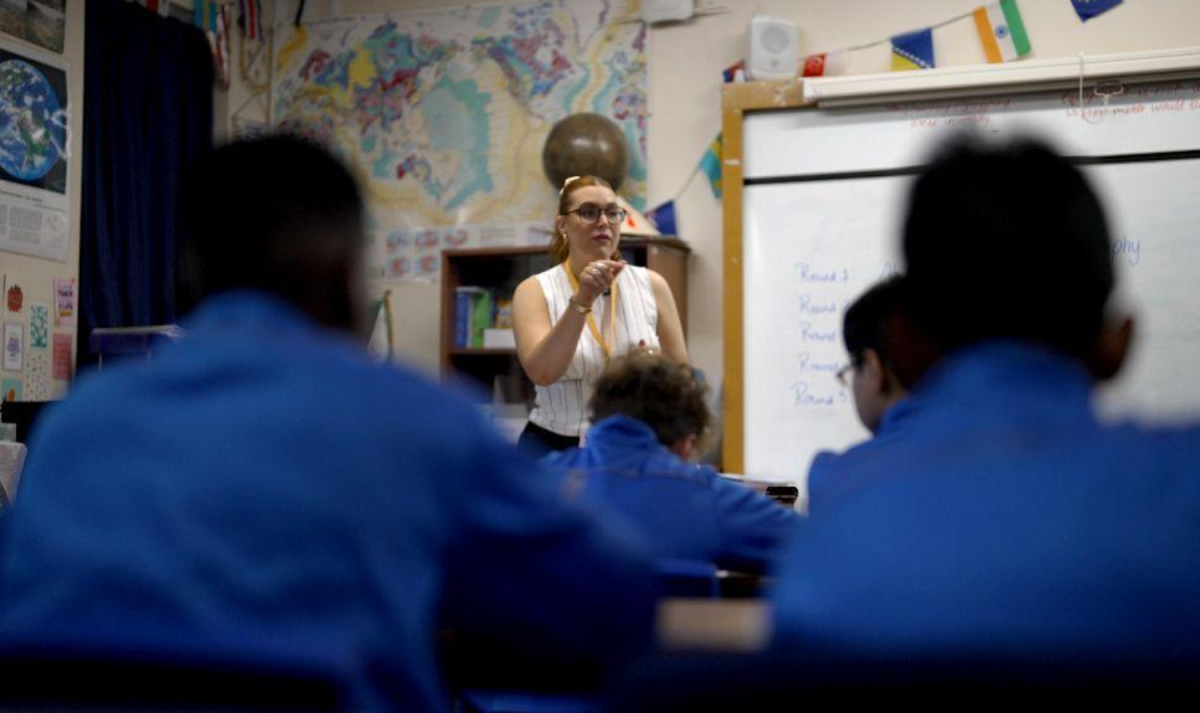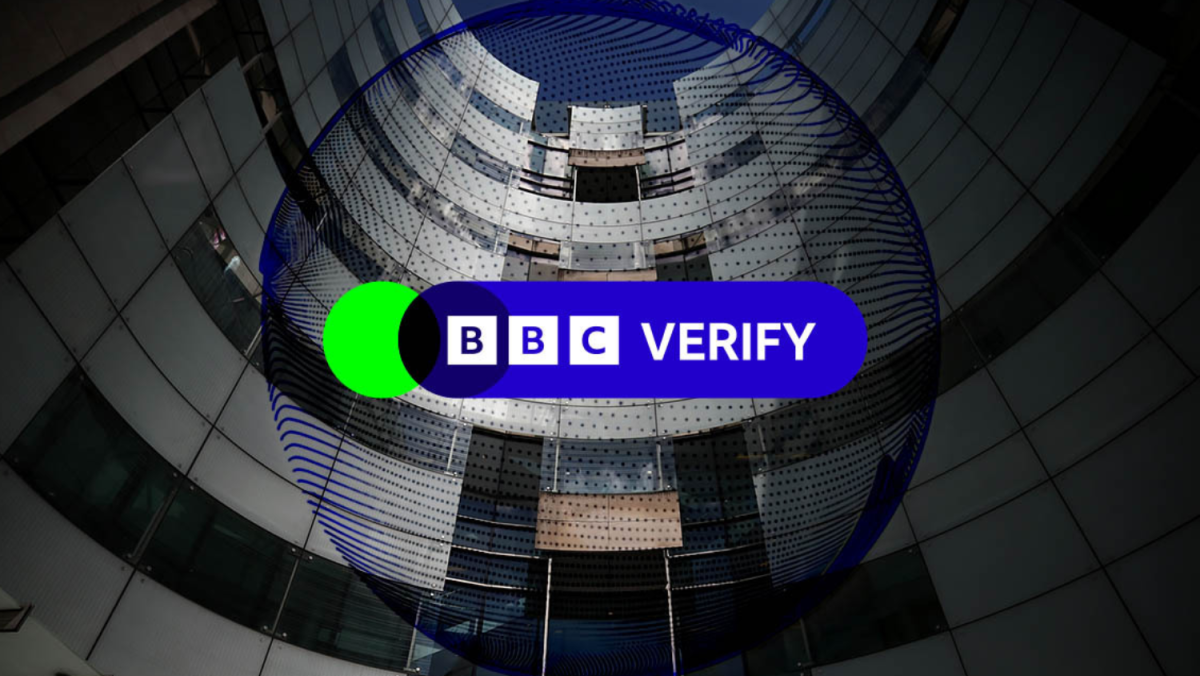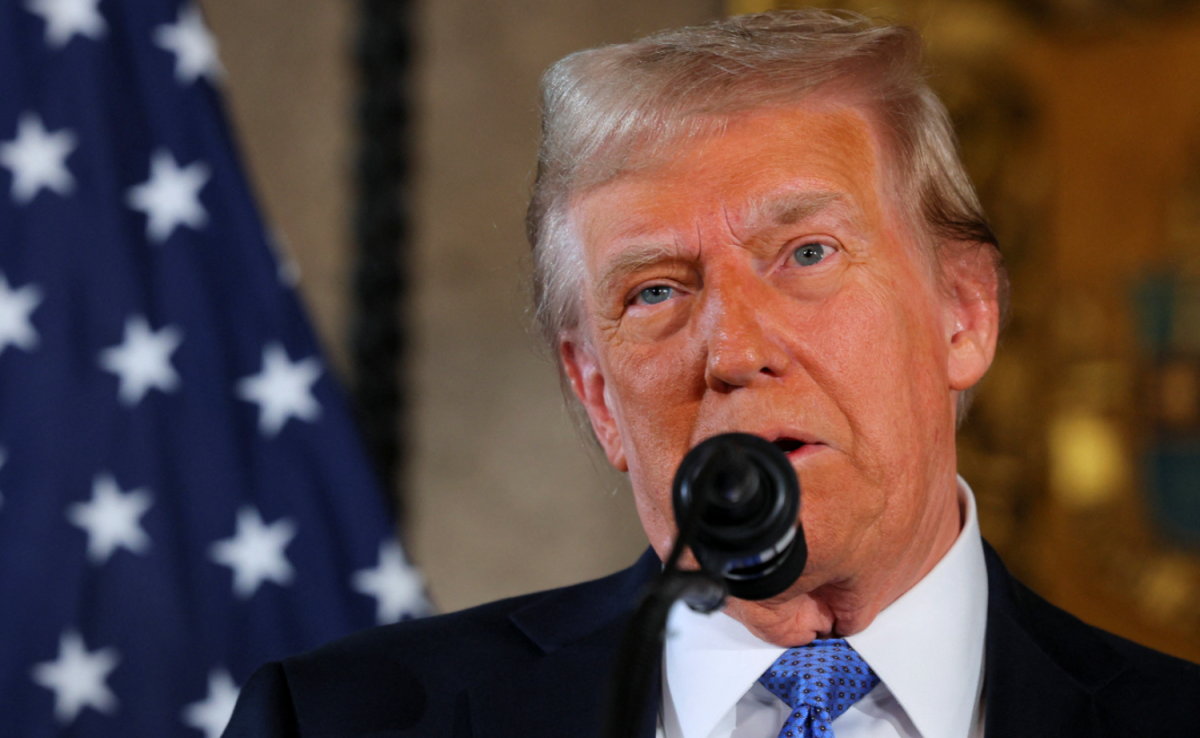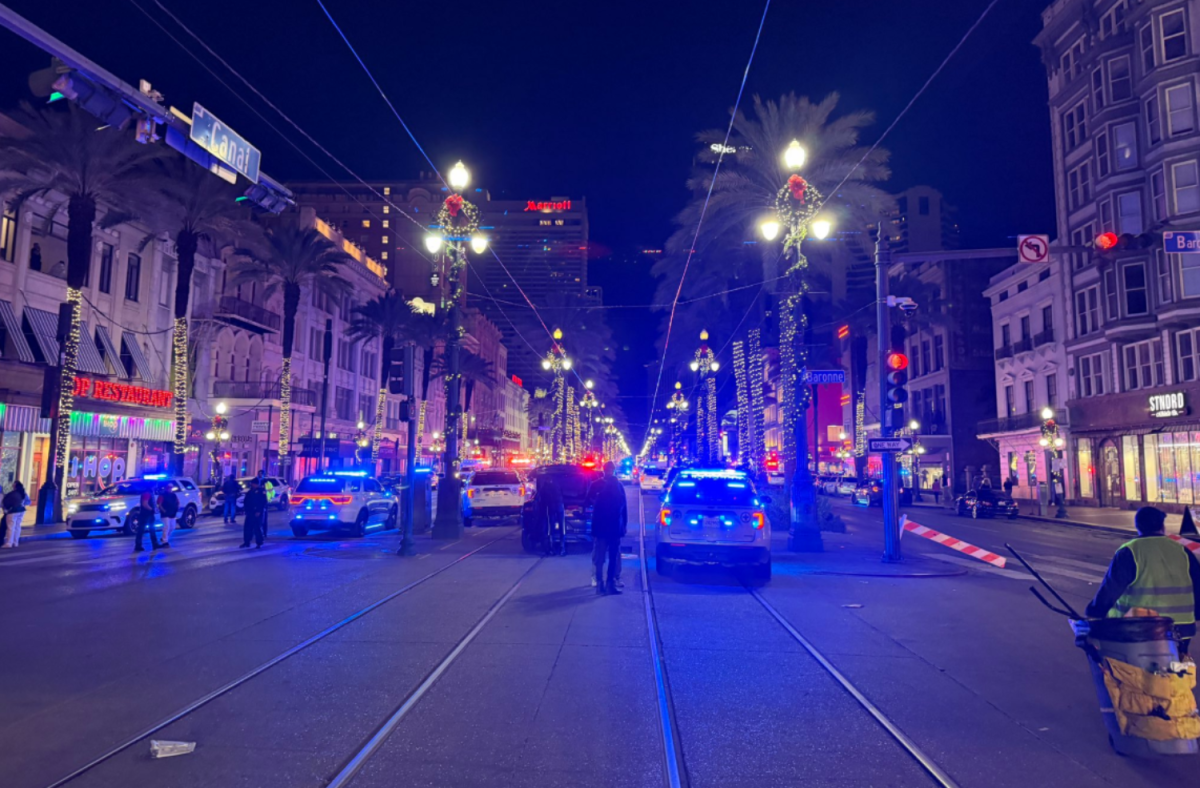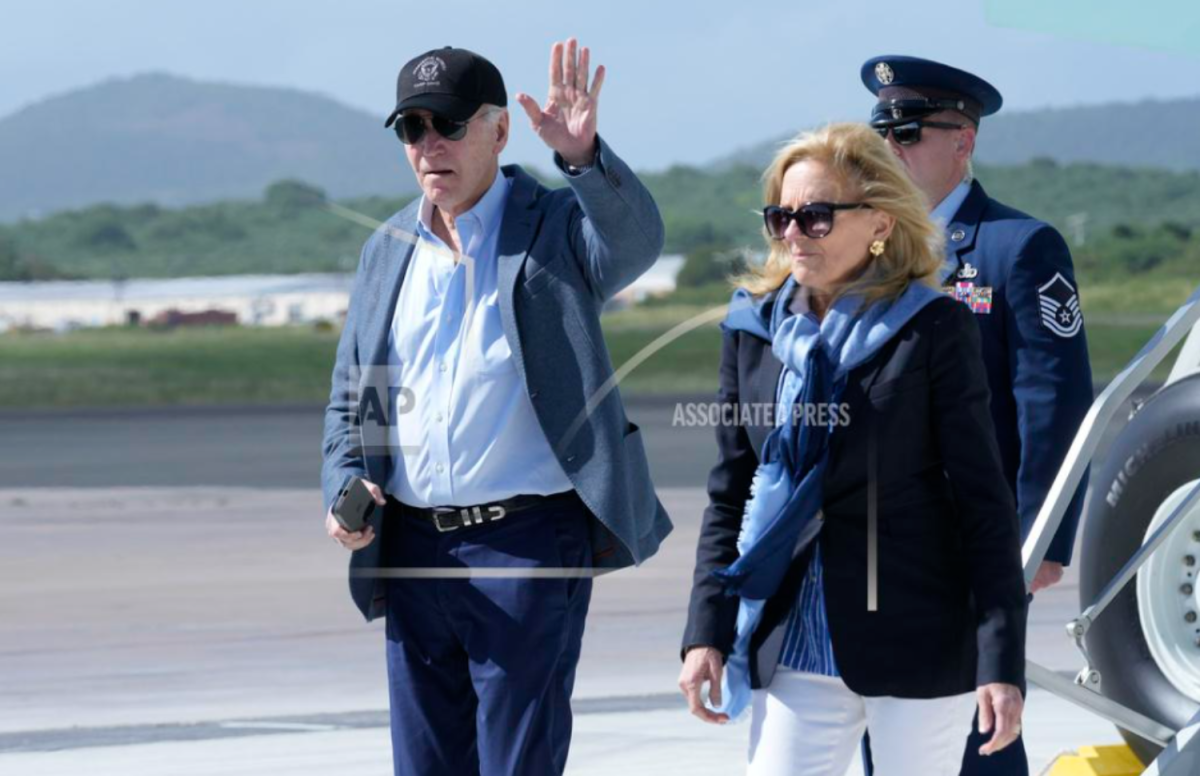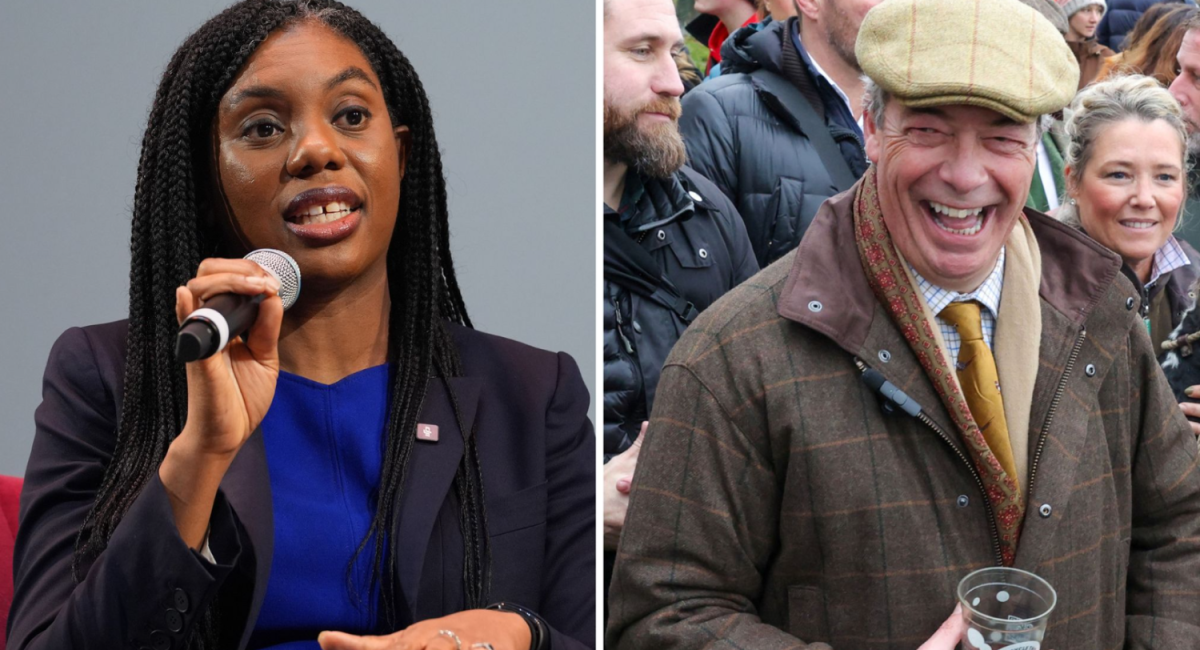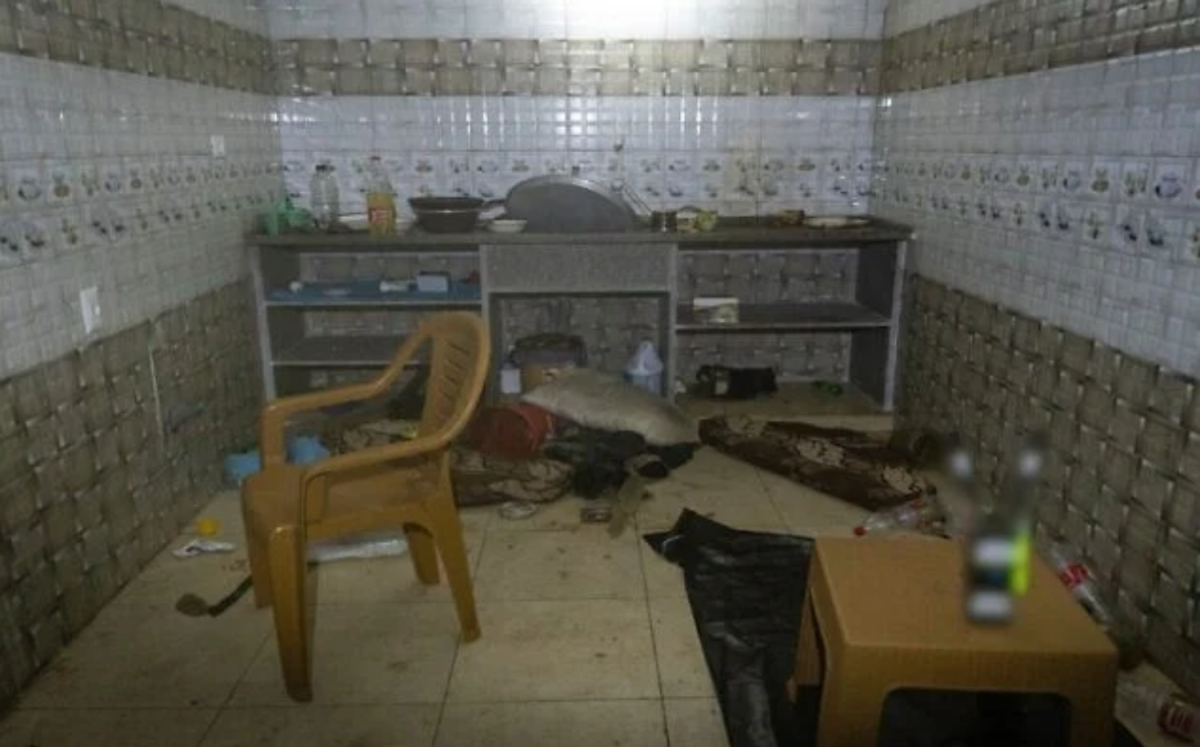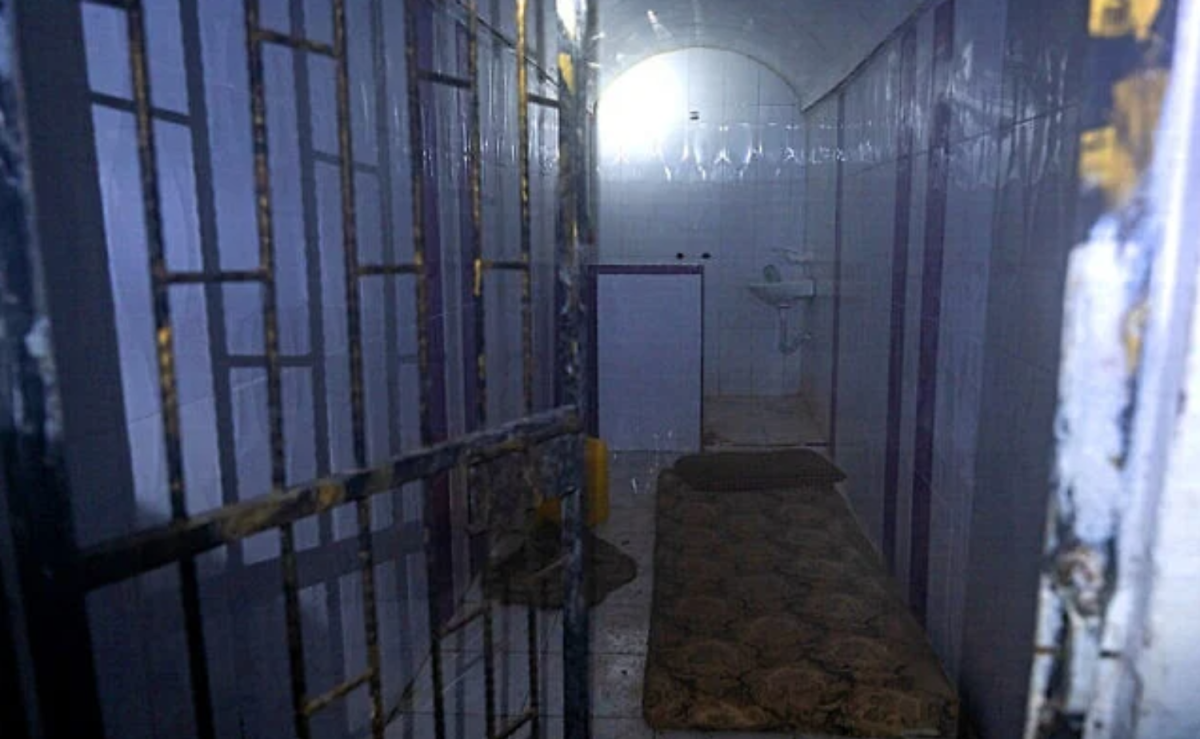-
Posts
10,078 -
Joined
-
Last visited
Content Type
Events
Forums
Downloads
Quizzes
Gallery
Blogs
Everything posted by Social Media
-
On Christmas Eve, NASA’s Parker Solar Probe achieved a historic milestone by flying closer to the Sun than any human-made object before it. As it swooped through the Sun's atmosphere, the spacecraft, operating autonomously without communication with Earth, continued its mission to unravel the mysteries of solar phenomena and their effects on space weather. This event underscores a pivotal question for the future of space exploration: Will humans remain necessary, or will robots equipped with advanced artificial intelligence (AI) take the lead? Robotic missions have dominated space exploration for six decades, reaching destinations far beyond human capability. The Parker Solar Probe endured temperatures exceeding 1000°C during its flyby, highlighting the extremes robots can survive. Andrew Coates, a physicist from University College London, notes, "For serious space exploration, I much prefer robotics. They go much further and do more things." Lord Martin Rees, the UK’s Astronomer Royal, shares this perspective, arguing that taxpayer money should not fund human space travel due to its risks and costs. "The only case for sending humans is as an adventure, an experience for wealthy people, and that should be funded privately," he asserts. Human spaceflight, however, has its advocates. Dr. Kelly Weinersmith, a biologist at Rice University, points out the intangible value of human presence in space. "Prestige will always be a reason that we have humans in space. It seems to have been agreed upon as a great way to show that your political system is effective and your people are brilliant." While robots excel in inhospitable environments and can conduct scientific research with precision, they have limitations. Mars rovers, for instance, move at a sluggish 0.1 mph, and their processors are significantly less powerful than modern smartphones. Despite advancements in AI, such as NASA’s Curiosity rover autonomously performing tasks on Mars, robots lack the adaptability and speed of human decision-making. Dr. Ian Crawford, a planetary scientist, observes, "AI can beat human beings at chess, but does that mean they'll be able to beat human beings in exploring environments? I just don't think we know." Still, robots like NASA’s humanoid Valkyrie and Robonaut show promise in supporting human missions. These machines can perform maintenance, operate tools, and secure habitats when astronauts are absent. Dr. Shaun Azimi, who leads NASA's dexterous robotics team, sees them as collaborators rather than replacements. "We see robots as a way to secure these habitats when humans aren’t around." Looking ahead, the role of humans in space exploration may evolve. Elon Musk envisions a human colony on Mars within two decades, transporting thousands aboard SpaceX’s Starship. Musk argues this could serve as a "backup for humanity" in case of catastrophic events on Earth. Yet, as Dr. Weinersmith cautions, ethical and biological challenges, such as whether babies can develop in Mars’s environment, remain unresolved. Lord Rees speculates on a more radical future: a merging of human and robotic capabilities. "I can imagine they will use all of the techniques of genetic modification, cyborg add-ons, and so on, to cope with very hostile environments," he predicts. "We may have a new species that will be happy to live on Mars." For now, humans and robots are likely to work together, each complementing the other’s strengths. As retired NASA astronaut Leroy Chiao reflects, "The general public is excited about robotic missions. But I would expect the first human on Mars to be even bigger than the first Moon landing." The journey into the cosmos will likely continue as a collaboration of ingenuity, blending human ambition with robotic resilience. Based on a report by BBC 2024-01-02
-
The Taliban has introduced a controversial new decree banning windows that allow views into areas where Afghan women might be seen inside their homes. This measure is purportedly aimed at preventing "obscene acts," according to Zabihullah Mujahid, a government spokesperson who shared the announcement on X, formerly known as Twitter. "Seeing women working in kitchens, in courtyards, or collecting water from wells can lead to obscene acts," he stated in his post. This decision represents yet another step in the Taliban's systematic repression of women since their resurgence in August 2021. Following the withdrawal of U.S. and allied forces in February 2020, the Taliban has rolled back numerous women's rights, barring girls from education beyond grade six, restricting women's access to universities, and prohibiting women from showing their voices or bare faces in public spaces. The recent decree, attributed to Taliban supreme leader Hibatullah Akhundzada, explicitly states that new buildings must avoid incorporating windows that provide views into courtyards, kitchens, wells, or other areas traditionally frequented by women. Existing windows with such views must be obstructed by walls or otherwise modified to block visibility. The directive, translated and reported by France24, underscores the Taliban's increasing efforts to enforce gender segregation and control over women's daily lives. Prominent figures and activists have expressed outrage at this development. Shabnam Nasimi, a former U.K. government policy adviser and advocate for Afghan women, condemned the move on X, stating, "Three-plus years since Kabul fell, and the world watches in silence. For shame." In a separate post, she questioned, "How much longer will the world stand by and watch?" The head of the United Nations mission in Afghanistan, Roza Otunbayeva, also weighed in, emphasizing the broader implications of the Taliban's policies. "There is an ongoing, dangerous erosion of human rights protections, with women and girls bearing the brunt," she said. As the global community continues to grapple with how to address the Taliban's actions, many countries, including the U.S., have not formally recognized the group as Afghanistan's legitimate government. However, diplomatic complexities persist. In November, Russian lawmakers proposed a bill that could potentially remove the Taliban from Russia's list of recognized terrorist organizations, signaling shifting geopolitical dynamics. The international response to this latest restriction remains uncertain, as activists and organizations continue to call for decisive action. While the Taliban's stance reflects their interpretation of cultural and religious norms, critics argue that such measures deepen the marginalization of Afghan women and girls, leaving their futures increasingly bleak. Based on a report by BBC 2024-01-02
-
Germany's government has expressed strong disapproval of tech mogul Elon Musk's apparent attempts to influence the country’s upcoming parliamentary elections by endorsing the far-right Alternative for Germany (AfD) party. Musk, a vocal supporter of U.S. President-elect Donald Trump and recently appointed "efficiency czar" in Trump’s administration, has sparked widespread controversy with his public comments and media engagements. This month, Musk used his social media platform X to declare, "Only the AfD can save Germany," a statement that quickly ignited political backlash. He subsequently reinforced his stance through an opinion piece published in a German Sunday newspaper, intensifying the debate. Responding to Musk's remarks, German government spokeswoman Christiane Hoffmann emphasized the sanctity of Germany's electoral process, stating, "It is a fact that Elon Musk is trying to exert influence on the parliamentary election. In Germany, elections are decided by voters at the ballot box." She further asserted that Germany’s elections remain "a matter for Germans" and reminded the public that the AfD has been classified as "extremist" by the nation’s domestic security agency. The controversy comes as Germany prepares for February 23 elections following the collapse of Chancellor Olaf Scholz's centre-left coalition government. Musk’s comments have drawn criticism across the political spectrum. Lars Klingbeil, co-leader of Scholz’s Social Democrats (SPD), accused Musk of mirroring Russian President Vladimir Putin’s tactics, claiming both figures aim to "weaken Germany and push it into chaos." Klingbeil also called for stronger European regulations to limit the political influence of large social media platforms like X. Musk's criticism of Scholz has been relentless, with his most recent attack following a deadly car-ramming incident at a Christmas market in Magdeburg on December 20. Musk called Scholz an "incompetent fool" and demanded his immediate resignation, further fueling tensions. Friedrich Merz, leader of the conservative opposition CDU/CSU, also condemned Musk’s actions, labeling his endorsement of the AfD as "interfering and presumptuous." Merz highlighted the unprecedented nature of such interference, stating, "I cannot remember a comparable case of meddling in the election campaign of an allied country in the history of Western democracy." The AfD, known for its controversial stances, currently sits in second place in the polls at 19 percent, trailing the CDU/CSU at 32 percent. Meanwhile, Scholz’s SPD is projected to achieve its worst-ever result at 16 percent, with its Green coalition partners polling at 13 percent. Musk’s controversial remarks have added a volatile dimension to an already tumultuous political landscape. As Germany navigates the challenges of an unexpected election, the fallout from Musk's intervention may further shape the discourse and outcome in the months ahead. Based on a report by AFP 2024-01-02
-
Russia’s unconventional attacks on NATO, designed to remain below the threshold of open warfare, “look like war,” and the alliance must establish clear red lines to deter further escalation, a former Lithuanian foreign minister has warned. Gabrielius Landsbergis, who recently stepped down after four years as Lithuania’s top diplomat, expressed concern over NATO's pace in addressing these threats during an interview with *Sky News*. Moscow is accused of employing hybrid warfare tactics, including sabotage, cyberattacks, election interference, and even the cutting of undersea cables. These actions sit in a "grey zone," intentionally designed to evade triggering direct military responses. While the Kremlin denies allegations of engaging in such hostilities, Landsbergis emphasized the urgency of NATO acting decisively to prevent further incursions. “From my perspective, it does look like war,” he said, just days before leaving his ministerial role. He warned that a lack of pushback could embolden Russia, which he described as adept at exploiting geopolitical weakness. “Russians are… very good at sensing weakness or geopolitical vacuums. So, if there is no pushback, they will just creep on and continue with their activity.” Landsbergis did not rule out the possibility that a Russian hybrid attack could cross a threshold severe enough to invoke Article 5 of NATO’s charter, which treats an attack on one member as an attack on all. “Yes, I would think so. It is possible,” he said, stressing that Moscow must understand the alliance’s resolve to retaliate if red lines are crossed. "We have to have a general NATO strategy that would be able to draw red lines and suggest a retaliation," Landsbergis explained. “I'm not necessarily saying a retaliation in kind. Right. It can be many things. But Russians need to know that this is not their park. You cannot just walk around and expect nothing to happen to you.” While NATO’s 32 members are updating a 2015 strategy on hybrid warfare, Landsbergis expressed frustration over the slow pace of progress. He noted that countries with a history of Russian aggression, like Lithuania, recognize the urgency of countering hybrid threats, while others within the alliance appear more complacent. "No, honestly, it isn't," he said when asked if NATO's response matched the scale of the threat. “There's a big psychological, you know, game, at least in our minds, being played where we try to sweep it under the carpet and not see it.” His comments echoed concerns raised by James Appathurai, a senior NATO official tasked with updating the alliance’s hybrid warfare strategy. Appathurai recently told *Sky News* that an unconventional Russian attack against NATO could result in “substantial” casualties, urging allies to clarify what actions might trigger a collective response, including the use of military force. Landsbergis emphasized that decisive action is critical to ensure Russia understands its limits. “If we do not act, the danger will only grow,” he concluded. Based on a report by Sky News 2024-01-02
-
London Mayor Sadiq Khan has been knighted in the New Year Honours, igniting fierce debate over whether his tenure warrants such recognition. Critics have labeled the honor as a "reward for failure," pointing to his controversial policies and perceived shortcomings during his time in office. Sadiq Khan, the former Labour MP for Tooting, became London’s first Muslim mayor in 2016 and was re-elected for a third term earlier this year, making history in the process. Despite this achievement, his leadership has been marred by significant criticism, particularly from Conservative figures who argue his policies have negatively impacted Londoners. Shadow Home Secretary Chris Philp highlighted sharp increases in knife crime, a housing crisis, and council tax hikes under Khan’s administration, saying, “Londoners have faced a 61 percent increase in knife crime, a housing crisis, and a 70 percent increase in council tax; they will rightly be furious his track record of failure is being rewarded.” Bob Blackman, Tory MP for Harrow East, was even more scathing in his remarks. “This is an absolute reward for failure,” he said. “He is a disaster in London. If you look at every single target he’s set himself – on housing, on crime – he’s missed them every time. He is a total failure.” Blackman called the knighthood “a kick in the teeth for millions of Londoners,” criticizing Khan for refusing to take accountability for issues like crime, police mismanagement, and rising taxes. Under Khan’s tenure, London has been dubbed the “knife crime capital,” with reports citing a 38 percent rise in knife offenses since he took office. The Metropolitan Police Service and London Fire Brigade have both been placed under special measures during his leadership. Khan’s policies, such as the Ultra Low Emission Zone (ULEZ), congestion charge increases, and Low Traffic Neighborhoods, have also drawn ire from drivers and businesses. While his administration claims ULEZ has nearly halved toxic air pollution in central London, critics argue the measures disproportionately impact ordinary Londoners. Supporters of Sir Sadiq, however, have defended his record, pointing to his historic third-term win and environmental achievements. They argue his policies, while divisive, have contributed to improved air quality in the city. The controversy surrounding Khan’s knighthood overshadowed a New Year Honours list intended to celebrate “unsung heroes.” Among the notable recipients were actor Stephen Fry, former England football manager Gareth Southgate, and authors Dame Jacqueline Wilson and Sir Kazuo Ishiguro. As the debate continues, Sir Sadiq Khan’s knighthood remains a contentious symbol of his complex and polarizing legacy as London’s mayor. Based on a report by Daily Mail 2024-01-02
-
Members of gang 'that raped and blackmailed children who they smuggled into Britain' are arrested in raids across the UK. Three members of a gang that smuggled children across the Channel before they were raped and blackmailed have been arrested in Britain. The Afghan fugitives, responsible for illegally moving thousands of migrants across Europe, were detained in police raids after being convicted in their absence by a Belgian court. The gang inflicted ‘extreme cruelty’ on the children and adults they smuggled, the Home Secretary said tonight. The criminal network moved migrants from Afghanistan through Iran, Turkey and the Balkans into western Europe, with many then crammed on to small boats heading for the UK. Young boys making the journey were seriously sexually abused, with gang members filming the attacks and using the footage to blackmail their victims into criminality and further sexual acts. Extraordinary footage shows Zeeshan Banghis, 20, and Saifur Rahman Ahmedzai, 23, being roused from their sleep by officers before they were arrested and marched into custody. Ahmedzai was detained in Hemel Hempstead, Hertfordshire, yesterday while National Crime Agency (NCA) officers picked up Banghis in south-east London on December 18. Their accomplice, Ziarmal Khan, 24, was arrested on December 6 at Stansted on suspicion of domestic violence, and then over his conviction in Belgium. Extradition proceedings are now under way to return them to Belgium to serve the sentences. So far 23 members of the gang have been convicted and sentenced by a court in Antwerp, of whom 11 were prosecuted in their absence. Ahmedzai had been jailed for ten years, while Khan and Banghis were each sentenced to three. The NCA spent two years working alongside Belgian police to build evidence on the network of people smugglers. NCA deputy director Craig Turner said: ‘These men were part of a network involved in illegally moving migrants across the globe... profiting from the dangerous situations they put vulnerable people into as they were transported, and committing the most heinous sexual offences against them.’ Home Secretary Yvette Cooper said: ‘This case is nothing short of sickening. ‘These men ran extensive illegal smuggling operations and inflicted extreme cruelty on the migrants they smuggled – some of them children – when they were at their most vulnerable.’ In the year to September 2024, almost 5,000 Afghans crossed the Channel into Britain in small boats. Iranians were the second largest group, followed by Syrians, Vietnamese and Eritreans. Roughly 80 per cent of those who made the crossings were male, with about 40 per cent aged between 25 and 39. Based on a report by Daily Mail 2024-01-02
-
The Independent Schools Council (ISC) has initiated a High Court legal challenge, claiming the Government’s proposed VAT on private school fees is discriminatory and undermines the rights of certain pupils. Representing over 1,400 private schools, the ISC filed a judicial review against Sir Keir Starmer’s flagship education policy, which aims to impose a 20 percent VAT on private school fees started January 1. The ISC asserts that the policy disproportionately impacts families who rely on private education to meet specific needs, such as children with special educational needs or disabilities (SEND), those attending single-sex schools, minority Jewish and Muslim families, and foreign nationals in bilingual schools. Six families, representing these groups, will serve as case studies in the legal proceedings. While their identities will remain anonymous, they are expected to argue that the additional financial burden could force them out of private education and into a state system ill-equipped to meet their unique requirements. One case study involves parents who have a young teen with special educational needs and will not be able to afford the additional cost of her child's private school fees from next year. She was refused an education health care plan (EHCP) by her local council. Without the support of an EHCP, she is "between a rock and a hard place". "She would tear up every morning. And I felt awful. I was dragging her to a school that she couldn't access because of her autistic needs," she said. "We entered the independent sector from the state sector out of desperation." Julie Robinson, chief executive of the ISC, expressed concern over the policy’s far-reaching consequences. “Throughout the debate over charging VAT on education, we have consistently said that the diversity within independent schools has been ignored by policymakers,” she stated. “As a result of the Government’s blanket approach, the impact is likely to be felt immediately by many families and children, many of whom have chosen an independent school for reasons including faith, SEND support, dual-language learning, or single-sex education.” The legal claim, naming Chancellor Rachel Reeves as the defendant since the policy falls under the Treasury’s jurisdiction, argues that the VAT measure infringes on human rights protected by the European Convention on Human Rights (ECHR) and the Human Rights Act 1998. The ISC has requested an expedited hearing, warning that families are already grappling with the impending financial strain as they weigh their options. The Council also highlights the policy’s broader implications, suggesting that it discriminates against private schools in comparison to other educational institutions like universities, which are exempt from VAT on fees. Robinson emphasized the importance of the case, stating, “We are seeking a declaration of incompatibility by the High Court to protect families who are having their choice removed from them by this policy.” While a favorable ruling in the High Court would not reverse the policy or halt its implementation, it could validate private schools’ concerns about its discriminatory nature and pressure the Government to introduce exemptions for affected families. The ISC anticipates a judicial review in early 2025, leaving many families anxiously awaiting clarity on their children’s educational futures. Based on a reports by Daily Telegraph & BBC 2024-01-02 Related: Top Oxfordshire Prep School to Close Amid Controversial VAT Policy on Private Education Looming Crisis: Private Schools Face Closures Amid VAT Hike Labour's School Curriculum Overhaul More Diversity to Reflect modern Britain
-
Russia has firmly rejected peace proposals reportedly being considered by President-elect Donald Trump’s team to resolve the ongoing war in Ukraine. Speaking at a press conference, Russian Foreign Minister Sergey Lavrov expressed dismay over suggestions that Ukraine’s NATO membership could be postponed or that European peacekeeping forces might be deployed within the country. Lavrov pointed to leaks and Trump’s December 12 interview with *Time* magazine as indicators of the incoming administration’s intentions. “Judging from numerous leaks and Donald Trump’s interview... their idea is to suspend hostilities along the line of contact and transfer responsibility for confrontation with Russia to the Europeans,” Lavrov stated. He criticized proposals that would delay Ukraine’s NATO membership for 20 years, calling them unacceptable. The Russian foreign minister made it clear that Moscow opposes any scenario that keeps the prospect of Ukraine joining NATO alive. “We are not happy, of course, with the proposals made by members of the Trump team to postpone Ukraine’s admission to NATO... and to station British and European peacekeeping forces in Ukraine,” Lavrov said. He reiterated Moscow’s stance that Ukraine’s NATO membership is non-negotiable, irrespective of territorial considerations. Although Trump declined to provide specific details about his plans for Ukraine during the *Time* interview, he did emphasize his commitment to supporting the country. Reports suggest the Trump transition team has been exploring a strategy involving European troops in Ukraine and delaying Kyiv’s NATO aspirations. Retired Lt. Gen. Keith Kellogg, expected to serve as Trump’s special envoy to Ukraine, has proposed leveraging military aid to Kyiv and threatening an increase in weaponry to pressure both sides into negotiations. Lavrov dismissed these ideas as untenable and warned that any effort by Trump to engage Moscow would face resistance. “Even if he tries to relaunch bilateral ties, he will have to swim against the stream,” Lavrov remarked. The Institute for the Study of War (ISW), a U.S.-based think tank, characterized Lavrov’s comments as reflective of Russia’s intransigence on negotiations. The ISW noted that Moscow’s demands remain rigid, including forcing Ukraine into permanent neutrality, significantly downsizing its military, and removing its current government. “These demands,” the ISW stated, “leave little room for compromise and underscore the challenges Trump will face in fulfilling his campaign pledge to end the war in Ukraine.” With Russia’s unwavering stance and its insistence on rejecting any compromises that undermine President Vladimir Putin’s objectives, Trump and his team are poised to face significant obstacles in crafting a viable path to peace. Based on a report by NYP 2024-01-02
-
The Guardian Angels, led by founder Curtis Sliwa, have returned to patrol New York City's subways, bringing their iconic red berets and anti-crime mission back to the troubled transit system. The renewed efforts come in response to a surge in subway violence and a rising sense of unease among New Yorkers. Founded in 1979 during a period of rampant subway violence, the Guardian Angels once boasted thousands of members worldwide. Sliwa, a former Republican mayoral candidate, launched the group while working as a night manager at a Bronx McDonald’s. Though the Angels have sporadically returned to the subway over the decades, this marks their first patrol since 2020. The decision to resume patrols followed the horrific arson death of a homeless woman on an F train in Brooklyn earlier this month. This tragedy was part of a troubling pattern of transit violence, with recent attacks including a 48-year-old man slashed in the neck at the West 50th Street station and a 52-year-old man stabbed in the arm at the Myrtle-Wyckoff station. NYPD statistics reveal a disturbing rise in transit crime. Over the past 28 days, 49 felony assaults were reported in the subway system, a 40% increase from the same period last year. This year, subway murders have reached 10, doubling the number in 2023 and matching the 25-year high of 2022. Between 1997 and 2019, transit homicides rarely exceeded five per year. Other violent incidents have also underscored the urgency of the Angels' return. Hours after the F train arson, a 76-year-old woman was randomly punched on a 6 train at the 51st Street station, and a 27-year-old man was assaulted on the Bleeker Street platform. “We ride the trains and check every car, making our presence known,” Sliwa explained. “Then we get off and check the really bad stations like here at 125th and Lex. Upstairs is like dope fiend city.” The Guardian Angels’ new mission has already sparked interest, with 70 people reaching out to volunteer after a recent report on their efforts. Founding member Arnaldo Salinas emphasized that recruits are carefully screened to ensure they are motivated by a genuine desire to help rather than vigilante impulses. “If we get answers like ‘my mom was robbed the other day, and I want to get out there and kick the f–king s–t out of somebody,’ then, no, we can’t use you,” Salinas said. Meanwhile, New York State has also stepped up efforts to combat subway violence. Governor Kathy Hochul has deployed 1,250 National Guardsmen to patrol 150 transit locations, including major hubs like Grand Central and Times Square. While a spokesperson for Hochul declined to comment on the Angels' patrols, the governor’s office confirmed its commitment to working with the NYPD and City Hall to address the crisis, focusing on removing individuals with mental health issues who pose risks to themselves or others. As New Yorkers grapple with the resurgence of transit chaos, the return of the Guardian Angels offers a sense of hope and nostalgia. For many, their presence is not just a reminder of the city’s past struggles but a symbol of resilience and community in the face of adversity. Based on a report by NYP 2024-01-02
-
Five years after the onset of the Covid-19 pandemic, the World Health Organization (WHO) has renewed its appeal to China for transparency in uncovering the origins of the virus. The pandemic, which has claimed millions of lives, disrupted economies, and overwhelmed healthcare systems, remains an enduring global concern. In a statement issued Monday, the WHO emphasized the importance of collaboration. "We continue to call on China to share data and access so we can understand the origins of Covid-19. This is a moral and scientific imperative," the organization declared. It further underscored that without transparency and cooperation between nations, the world risks being unprepared for future pandemics. "Without transparency, sharing, and cooperation among countries, the world cannot adequately prevent and prepare for future epidemics and pandemics." The agency recalled the initial alert it received on December 31, 2019, when its country office in China detected reports from health authorities in Wuhan regarding cases of "viral pneumonia." The following months saw the virus redefine global norms. "In the weeks, months and years that unfolded after that, Covid-19 came to shape our lives and our world," the WHO remarked. Marking the five-year milestone, the organization took a moment to honor those affected by the pandemic. "Let’s take a moment to honour the lives changed and lost, recognise those who are suffering from Covid-19 and Long Covid, express gratitude to the health workers who sacrificed so much to care for us, and commit to learning from Covid-19 to build a healthier tomorrow," it urged. Earlier in December, WHO Director-General Tedros Adhanom Ghebreyesus addressed the question of whether the world was better equipped for the next pandemic. His response reflected both progress and lingering vulnerabilities. "The answer is yes, and no," he stated. "If the next pandemic arrived today, the world would still face some of the same weaknesses and vulnerabilities that gave Covid-19 a foothold five years ago. But the world has also learnt many of the painful lessons the pandemic taught us, and has taken significant steps to strengthen its defences against future epidemics and pandemics." Efforts to formalize a global response mechanism are ongoing. In December 2021, spurred by Covid-19's devastating impact, nations began drafting an international accord on pandemic prevention, preparedness, and response. While significant progress has been made, negotiations remain gridlocked on critical issues. A notable divide exists between wealthier nations with established pharmaceutical industries and low-income countries concerned about equitable access during future health crises. Central to the debate is the commitment to rapidly share emerging pathogens and the resulting benefits, such as vaccines. These unresolved matters remain the core of the treaty, which has a negotiation deadline set for May 2025. As the world reflects on five years of grappling with Covid-19, the WHO’s call for collaboration serves as a stark reminder of the ongoing need for global solidarity in addressing both current and future public health challenges. Based on a report by AFP 2024-01-02
-
BBC Verify, an investigative unit launched to combat disinformation, has faced increasing scrutiny due to high-profile missteps in its reporting. Promoted as the "frontline of the fight for truth," the unit's commitment to accuracy has been questioned following a series of corrections and controversies. A notable example arose during the riots following the Southport murders, when BBC Verify reported a violent racist attack in Humberside. The team identified two alleged attackers using open-source intelligence (OSINT) and facial recognition, claiming they targeted a car of men "of Asian heritage." However, Humberside Police later clarified that the victims were Eastern European, making the event unrelated to racial tensions as originally reported. Despite having multiple writers on the story, Verify failed to identify this critical detail before publication. Another instance involved allegations of systemic racism in the motor insurance industry. Maryam Ahmed, a BBC Verify journalist, reported that drivers in racially diverse areas paid 33% higher premiums, suggesting an "ethnicity penalty." Months later, the article was quietly retracted. The BBC admitted its analysis was flawed, stating it had failed to account for the limitations of its data. In October 2022, BBC Verify’s reporting on an explosion at Al Ahli hospital in Gaza sparked further controversy. Initially attributing the blast to an Israeli airstrike, the BBC echoed Hamas' claim of 500 deaths. Subsequent investigations by independent experts and Western governments pointed to a misfired Palestinian rocket, significantly reducing the death toll. While many revised their assessments, Verify maintained the event’s origins were "contested," relying heavily on analysis from Forensic Architecture, an organization with strong ties to pro-Palestinian activism. Critics argued this affiliation should have been disclosed to provide context for the claim. Another Gaza-related report from Verify relied on a questionable source. Mahmoud Awadeyah alleged that Israeli soldiers deliberately attacked civilians during an aid distribution in March 2023. However, Awadeyah’s ties to Tasnim, a media outlet controlled by Iran's Revolutionary Guards, and his history of celebrating anti-Israeli violence raised serious doubts about his credibility. Despite these associations, BBC Verify presented his account without disclosing these affiliations, leading former BBC Television Director Danny Cohen to criticize the omission as "misleading audiences." Since its inception in May 2023, Verify has published more than 200 stories, of which approximately 5% have been corrected, clarified, or withdrawn. Cohen highlighted this as a troubling statistic, emphasizing the BBC’s responsibility to uphold the highest journalistic standards. These controversies underline deeper concerns about Verify's approach, which some argue prioritizes quick, shareable content over rigorous fact-checking. As the unit continues to dominate BBC News output with over 60 dedicated journalists, its effectiveness in combating disinformation will depend on its ability to address these systemic flaws and rebuild trust with its audience. Based on a report by UnHerd 2024-01-02 Related: Former BBC News Chief Voices Concerns Over Verify Unit’s Impact on Journalism Credibility
-
Former US President Donald Trump has once again issued a strong ultimatum to Hamas, demanding the immediate release of hostages being held in Gaza. Trump’s comments came during a New Year’s Eve gala at his Mar-a-Lago resort in Florida, as he was pressed by reporters on the delicate situation. The former president’s remarks highlight the ongoing tension surrounding the hostages and the apparent impasse in talks aimed at resolving the crisis. As Trump prepares for a potential return to office, his firm stance underscores the high stakes involved in addressing the situation in the region. Asked about his resolutions for the new year, Trump said, “I just want everybody to be happy, healthy and well.” Trump later took the stage to briefly address the crowd ringing in the new year at Mar-a-Lago and promised “to do a great job as your president.” Biden, for his part, spent New Year’s Eve celebrating the wedding of his niece Missy Owens in Greenville, Delaware, followed by the reception in Kennett Square, Pennsylvania. Biden and first lady Jill Biden cut short their traditional holiday trip to the U.S. Virgin Islands to attend the ceremony. Based on a report by USA News | TOI | 2024-01-02
-
Reports suggested a vehicle had driven through a crowd on New Orleans' extremely popular Bourbon Street, killing multiple people. Emergency services, including ambulances and vehicles from the coroner's office, were reportedly at the scene. Bourbon Street appeared to be shut down with a heavy police presence. In a post on X, a journalist at local news outlet WGNO-TV wrote: "NOPD source states that as many as 10 fatalities after driver in pickup truck plowed into crowd on Bourbon Street. "Multiple more injuries. Mayor and police chief on scene," he added, though this has not yet been confirmed. WGNO reports the Bourbon Street has been cleared and closed as emergency services attend its intersection with Iberville. Based on a reports by CBS | Daily Express | 2025-01-02
-
In November, a piece of space debris hurtling toward the International Space Station (ISS) forced astronauts onboard to act swiftly. To avoid disaster, a Russian spacecraft docked to the ISS fired its engines for five minutes, altering the station’s orbit and narrowly dodging the debris. Without this maneuver, the object could have come within 2.5 miles (4 kilometers) of the station’s path, according to NASA. A direct collision could have depressurized parts of the station, potentially forcing the crew to evacuate. Space traffic experts have long warned of this increasing congestion. Decades of collisions, explosions, and anti-satellite weapons tests have scattered tens of thousands of trackable debris fragments into orbit, with potentially millions of smaller, untrackable pieces lingering. Beyond the dangers to astronauts, this space clutter poses serious risks to satellites that support vital technologies such as GPS, high-speed internet, and television. “The number of objects in space that we have launched in the last four years has increased exponentially,” said Dr. Vishnu Reddy, a planetary sciences professor at the University of Arizona. “So we are heading towards the situation that we are always dreading.” This situation is known as Kessler Syndrome, named after American astrophysicist Donald Kessler, who first described it in a 1978 paper. Kessler Syndrome refers to a theoretical chain reaction where debris from one collision triggers more collisions, producing additional fragments. This cascade effect could eventually render Earth’s orbit so cluttered that satellites become inoperable and space exploration grinds to a halt. The European Space Agency has recorded more than 650 fragment-producing events since the advent of spaceflight in 1957. These include satellite collisions, unexpected explosions of spacecraft, and deliberate weapons tests conducted by countries like the United States, Russia, India, and China. For instance, in 2021, Russia destroyed one of its own satellites with a missile, generating more than 1,500 trackable pieces of debris. The concept of Kessler Syndrome gained popular attention through the 2013 film *Gravity*, in which a Russian missile strike sets off a devastating series of space collisions. However, real-world scenarios would unfold over years or even decades rather than the brief span depicted in the movie. Today, congestion in orbit is accelerating at an alarming pace. The U.S. military tracked about 23,000 objects in orbit when *Gravity* premiered. That number has since doubled to approximately 47,000 objects. Scientists are racing to predict how and when a cascading effect might occur, but the task is fraught with uncertainty. “As soon as we’re predicting into the future, we have to make assumptions,” noted Purdue University’s Carolin Frueh. “Every model is wrong — (but) some are useful.” The question now is whether Kessler Syndrome has already begun. Since it is not an instantaneous event, scientists debate whether the chain reaction is in its early stages. Kessler’s original thought experiment invites us to consider if, even with no further rocket launches, the collisions already in motion might escalate the proliferation of orbital debris. The answer remains unclear, but one thing is certain: space is running out of room. Based on a report by CNN 2024-12-31
-
Farmers across the country are planning a significant escalation in their protests against the government’s recent inheritance tax changes. In a bold move, radical elements within farming protest groups are preparing to blockade supermarket distribution centers, potentially crippling the nation’s food supply chain. According to sources, the planned action could begin as early as mid-January, starting with short blockades to demonstrate feasibility before escalating to longer shutdowns. The ultimate goal, protest leaders warn, could be a “complete shutdown” of distribution hubs, leading to empty supermarket shelves and widespread disruption. “The first time will be for a short period to show it can be done,” one protest insider told *The Telegraph*. “Then a 12 or 24-hour shutdown, and ultimately, if it gets that far, a complete shutdown until the Government comes to the table. It could ultimately shut down the economy—no food means serious chaos. The Government have picked a fight with the wrong sector!” The unrest stems from a policy announced by Chancellor Rachel Reeves in the Autumn budget, which imposed a 20 percent inheritance tax on farmers’ assets exceeding £1 million. This marked a significant shift from previous tax breaks that allowed family farms to pass down through generations without being subjected to the 40 percent inheritance tax rate. The new policy has provoked widespread anger within the farming community. In November, thousands of farmers gathered in Westminster to protest the tax, with high-profile attendees like Jeremy Clarkson, the former *Top Gear* presenter, lending their support. Since then, smaller demonstrations have continued in the capital, and tractor “go-slow” protests have been staged in areas such as Dover and Suffolk. The National Farmers’ Union (NFU) and other farming organizations are organizing a national day of action on January 25, which will include tractor rallies and roadside banners targeting Labour’s marginal constituencies. However, some groups believe these measures are not enough and are opting for a more aggressive approach with the planned blockade. The proposed action would focus on disrupting supermarket distribution centers, which are critical for moving food from suppliers to retail outlets. Such a move could result in significant disruptions to the nation’s food supply chain, with empty shelves and delayed deliveries impacting households across the country. As tensions rise, protest leaders are adamant that the government must reconsider its policy. They argue that the tax changes threaten the viability of family-run farms, which have long been the backbone of the UK’s agricultural sector. By targeting this essential industry, they contend, the government risks destabilizing not just the farming community but the entire economy. “It could ultimately shut down the economy, no food means serious chaos. The Government have picked a fight with the wrong sector!” Based on a report by Daily Telegraph 2024-12-31
-
President Joe Biden’s final days in office have sparked intense debate, with CNN commentator Scott Jennings declaring that the president will “leave office in disgrace.” This sharp critique was voiced during Sunday’s episode of CNN’s *State of the Union*, where Jennings joined host Dana Bash and fellow panelist Karen Finney to discuss Biden’s legacy. “I think he’s gonna leave office in disgrace,” Jennings stated, as reported by *Mediaite*. “The Hunter Biden pardon was disgraceful. He’s going to be remembered largely for inflation and for the disastrous Afghanistan pullout.” Jennings also raised concerns about the administration’s handling of Biden’s cognitive health, suggesting that significant efforts were made to obscure a potential decline. “I think it’s going to be a really ugly chapter,” he remarked. “It’s a diminished presidency because of it.” He further speculated about the extent of these alleged efforts, adding, “I think we still don’t know the full extent of what they did to try to hide what they’ve been doing over in the West Wing.” As the transition to President-elect Donald Trump nears, Biden has undertaken a series of final executive actions. Among them is the controversial decision to pardon his son, Hunter Biden, which has drawn sharp criticism from Republicans and commentators alike. In addition to this, Biden commuted the sentences of 37 individuals on federal death row, further fueling debate over his legacy. While Biden’s supporters highlight achievements in infrastructure, healthcare, and climate policy, detractors like Jennings argue that his administration will be remembered for scandals, economic challenges, and what they perceive as a chaotic withdrawal from Afghanistan. With just weeks left in his presidency, the debate over Joe Biden’s legacy is far from settled, leaving Americans divided over how history will remember the 46th president. Based on a report by The Hill 2024-12-31
-
A public feud between Reform Party leader Nigel Farage and Conservative leader Kemi Badenoch has escalated, with Farage demanding an apology for allegations that he misrepresented his party’s membership size. The controversy has spilled into the media, particularly GB News, where Farage hosts a prime-time show. The row began on Boxing Day when Farage claimed that the Reform Party now boasts more members than the Conservatives. Badenoch reportedly dismissed this as "fakery," sparking a heated exchange. Farage responded by calling the accusation “disgraceful” and insisting that Badenoch either apologize or face consequences. Farage took to social media, tweeting: “Kemi talks about competition being a good thing but now we see that she wants me taken off air. Maybe her first priority should be to go on GB News today and apologize for calling me dishonest. Her two days of silence are deafening.” The feud intensified with reports that Badenoch urged GB News executives to limit Farage’s airtime, allegedly accusing the channel of “favoring” him and giving undue exposure to her critics. Sources close to Badenoch dismissed these claims as “nonsense,” but Farage continued to press the issue, describing her actions as part of a "crazy conspiracy theory." According to *The Mail on Sunday*, GB News CEO Angelos Frangopoulos was summoned to meet with Badenoch before Christmas. During this meeting, Badenoch reportedly expressed concerns over the regulatory implications of allowing politicians like Farage, Lee Anderson, and Andrea Jenkyns to host programs on the channel. However, sources close to Badenoch framed the discussion differently, stating that she was seeking to ensure media projects adhere to “the highest standards of propriety.” An ally of Badenoch commented, “Kemi had a good meeting with GB News, which was mostly about her doing more with the channel. She did ask about the status of programs fronted by politicians and where GB News stood with the regulator. The meeting was very friendly.” Farage, however, has characterized the situation as an attack on his credibility and a bid to silence him. He also alleged that whistleblowers informed him that ballots were sent to former Conservative members during their leadership election, further fueling his accusations of impropriety within the Tory party. The debate has even extended to social media, where a fact-checking alert on one of Badenoch’s tweets labeled her claims about Farage as false. The community note added, “This claim is false. It’s not a ‘fake ticker.’” Farage continues to demand a public apology, stating, “The accusations of fraud and dishonesty made against me are disgraceful.” As the dispute plays out, it highlights tensions between traditional media, political figures, and emerging platforms like GB News, which increasingly serve as battlegrounds for public opinion. Based on a report by Daily Mail 2024-12-31
-
Two trainee police officers, celebrated for their courage and quick thinking, successfully apprehended a rapist on the streets of Birmingham. The incident unfolded after Awalkhan Sultankhail, 24, committed a horrifying attack on a woman in a park. The assault occurred on August 27 last year, when Sultankhail approached his victim on Golden Hillock Road in Small Heath at approximately 4 PM. After attempting to initiate a conversation, he dragged her into nearby bushes and raped her when she tried to walk away. The assault was interrupted by a member of the public, who promptly alerted the police, causing Sultankhail to flee. CCTV footage and a detailed description provided by the victim enabled police officers to identify Sultankhail four days later. Pcs Declan McDevitt and Peter Jones, on reassurance patrols in the area, recognized the suspect and initiated a pursuit. In dramatic video footage, the two officers can be seen chasing Sultankhail before cornering and arresting him on Ladypool Road in Sparkbrook. Speaking about the arrest, Pc Jones shared the emotional intensity of the moment: “I was just concentrating on not letting him get away, due to the nature of the offence. I was also concentrated on communicating using my radio to other officers and the control room by letting them know where the suspect was running, in order to get more officers there in case we lost him in the foot chase.” Reflecting on the successful apprehension, Pc Jones added, “I felt immensely proud of myself and Pc McDevitt as we have caught someone who has committed an horrific offence in broad daylight. I went home that day feeling satisfied that I have helped the victim get one step closer to getting the justice she deserves, and knowing that he won’t be able to commit another offence for a long time.” Sultankhail initially denied interacting with or following the victim. However, faced with overwhelming evidence, he pleaded guilty to the crime. At Birmingham Crown Court, he was sentenced to five years and three months in prison, with an additional four years to be spent on licence. Supt Emlyn Richards of Birmingham Police commended the officers, stating, “This was absolutely first-rate work by these two officers, who have only relatively recently joined us. The footage shows how the two refused to let the suspect get away, and thanks to their determination, he’s now going to be spending years behind bars.” This swift and determined response highlights the bravery and dedication of trainee officers in protecting the community and ensuring justice for victims of crime. Based on a report by The Independent 2024-12-31
-
Teens forced to perform sexual acts on each other: Report to UN details Hamas torture. Government document compiles grim details of abuse of hostages, including whipping, branding with heated iron, isolation, binding, starving, maltreatment and psychological torment. The report from Israel’s health ministry details the horrific torture and abuse inflicted on the hostages in Gaza. More on the report from Sky News: According to the report, the terrorist captors forced two minors to perform sexual acts on one another and compelled them to take off their clothes in front of them, touched their private parts, and whipped their genitalia. The same two former hostages also reported that “they were held bound and were beaten throughout their captivity. Signs of binding, scars, and marks consistent with trauma were found,” the report says. “Additionally, two young children had burn marks on their lower limbs,” the report adds. “One child stated that the burns were the result of a deliberate branding with a heated object. Both the child and adults who were with him in captivity described the incident as a purposeful branding event, not an accident. It was described as an extremely traumatic experience.” “One of the returned hostages described being sexually assaulted at gunpoint by a Hamas terrorist,” the report says. “On several occasions, captors forced women of all ages to undress while others, including the captors, watched. Some women reported that the captors sexually assaulted them. Some former hostages have spoken publicly. Earlier this year, freed hostage Amit Soussana told The New York Times of how she was forced to perform “a sexual act” on one of her captors. Conditions were ‘designed to torture the hostages psychologically’. A total of 251 hostages were abducted from Israel on October 7, 2023, during the Hamas-led onslaught in southern Israel that killed 1,200 people. Ninety-six of them remain in Gaza, including the bodies of at least 34 confirmed dead by the IDF. Hamas released 105 civilians during a weeklong truce in late November, and four hostages were released before that. Eight hostages have been rescued by troops alive, and the bodies of 38 hostages have also been recovered, including three mistakenly killed by the Israeli military as they tried to escape their captors. Captives, including children, were forced to watch videos of the October 7 atrocities. Many of the terrorists who took part in the attack filmed it, including extreme acts of cruelty. The men, meanwhile, “endured severe physical abuse, including continuous starvation, beatings, burns with galvanized iron (branding), hair-pulling, confinement in closed rooms with a limited amount of food and water, being held in isolation with hands and feet tied, and being denied access to the bathroom, which forced them to defecate on themselves.” The Hostages and Missing Families Forum said the report painted “a grim reality of the physical abuse and psychological torment” endured by the hostages. It urged a comprehensive deal “to secure the immediate release of all hostages.” Based on reports by AFP | VOA News | TOI | 2024-12-31 Related Topics Harrowing Captivity: The Ordeal and Rescue of Hostages Held by Hamas Chilling Confessions Father and Son Describe Sexual Crimes During Hamas Invasion New Very Disturbing Video Released of 5 Female Hostages being abducted by Hamas on Oct 7th UN finds evidence of rape on Oct. 7 and after; Israel: They tried to downplay issue
-
Columbia University has launched an investigation into a controversial student newspaper titled *The Columbia Intifada*, which has sparked significant backlash. The university disavowed the publication, emphasizing that its association with the institution’s name and its messaging are unacceptable. Columbia University is so embedded in Anti-Israel propaganda that it has a publication entitled “The Columbia Intifada.” What is needed in our society is a revolution of the responsible against the Intifada idiocy of the far left. The publication was publicly endorsed by Columbia University Apartheid Divest (CUAD), which promotes itself as a New York City-based organization supporting Palestinian liberation. CUAD announced the release of the newspaper via Instagram, stating: “Columbia SJP’s first ever print paper ‘The Columbia Intifada’ is available at today’s READ-IN at BUTLER LIBRARY 301! We’re distributing 1,000 copies — get them while you can! From the river to the sea, Palestine will be free.” In response, Columbia University issued a strongly worded statement condemning the association of its name with the publication, saying, “Using the Columbia name for a publication that glorifies violence and makes individuals in our community feel targeted in any way is a breach of our values. As we have said repeatedly, discrimination and promoting violence or terror is not acceptable and antithetical to what our community stands for.” The university added that it is investigating the matter through its appropriate offices and policies. The paper has also drawn criticism from political and organizational leaders. Representative Ritchie Torres, D-N.Y., expressed his disapproval on X, formerly Twitter, writing, “Columbia University is so embedded in Anti-Israel propaganda that it has a publication entitled ‘The Columbia Intifada.’ What is needed in our society is a revolution of the responsible against the Intifada idiocy of the far left.” Jonathan Greenblatt, CEO of the Anti-Defamation League, also criticized the publication, calling it “beyond offensive.” He stated, “It’s a provocation. It’s an incitement. It’s a not-so-veiled threat against Jewish & Israeli students. Columbia can’t just condemn; the administration must hold the culprits accountable.” The controversy has brought national attention to Columbia University, highlighting tensions over free speech, campus activism, and the broader implications of the Israeli-Palestinian conflict. Based on a report by NBC 2024-12-31
-
President-elect Donald Trump, known for his bold rhetoric during the campaign trail, has recently tempered his grandiose promises as he transitions to governing. Throughout his campaign, Trump pledged sweeping actions, such as quickly reducing costs, resolving the Ukraine war even before taking office, and using tariffs to boost the U.S. economy and manufacturing. However, since his victory in November's election, he has suggested that fulfilling these commitments may prove more challenging than initially portrayed. In a recent interview on "Meet the Press," Trump admitted he could not guarantee that tariffs wouldn't lead to higher consumer prices. During a separate interview with *Time* magazine, where he was honored as Person of the Year, Trump acknowledged the complexities of lowering costs. “It’s difficult to bring down the cost of groceries once they’ve gone up,” he conceded. Similarly, during his first post-election press conference from Mar-a-Lago in Palm Beach, Florida, Trump signaled that resolving the war in Ukraine might be even more complex than managing tensions in the historically volatile Middle East. Critics, including Democrats, were quick to interpret these remarks as a backpedaling of campaign promises. Some suggested Trump was lowering expectations or reneging on his commitments. Senator Elizabeth Warren (D-Mass.) highlighted this sentiment, posting on X, “Candidate Trump promised to lower grocery prices, but now it seems he isn’t even going to try.” She added, “While champagne corks pop at Mar-a-Lago, President-elect Trump says that he can’t really lower grocery prices because it’s ‘very hard.’ Sad. It’s the start of a broken promise.” Nonetheless, Trump’s allies defended his shift in tone, framing it as a natural transition from campaign rhetoric to the more nuanced responsibilities of governing. “The American people re-elected President Trump by a resounding margin, giving him a mandate to implement the promises he made on the campaign trail. He will deliver,” said Karoline Leavitt, a spokesperson for the transition team and incoming White House press secretary. One Trump ally dismissed accusations of inconsistency, asserting that the president-elect was merely moving away from the dramatic sales pitch typical of campaigns. Trump himself suggested a pragmatic outlook when asked if his presidency would be considered a failure if costs didn’t decline. “Look, they got them up. I’d like to bring them down. It’s hard to bring things down once they’re up,” he said. “But I think that they will. I think energy is going to bring them down. I think a better supply chain is going to bring them down. You know, the supply chain is still broken.” In other areas of foreign affairs, Trump has oscillated between his characteristic bombast and newfound pragmatism. He floated provocative ideas such as suggesting Canada become the 51st U.S. state and revisiting American control of the Panama Canal, alongside revisiting Greenland’s acquisition as a "necessity." Analysts speculate these statements could be part of strategic negotiating tactics aimed at leveraging trade and tariffs to benefit the U.S. Regarding the Ukraine conflict, Trump appeared to step back from his earlier debate-stage assertion that he would end the war “before even becoming president.” This week, he told reporters that resolving the Ukraine-Russia war would likely be more challenging than managing tensions in the Middle East, a region rife with conflicts involving Israel, Iran, and Syria. While Democrats frame these shifts as early evidence of broken promises, Trump and his team argue that the adjustments reflect a realistic approach to governing—a balance between ambition and practicality. As the president-elect prepares to take office, the weight of global complexities and domestic challenges appears to be shaping his approach to the promises that energized his campaign. Based on a report by The Hill 2024-12-31
-
Perched on the scenic Northumberland coast, Alnmouth Village Golf Club, one of the UK's oldest golf establishments, is grappling with a grave threat to its future—rising sea levels and coastal erosion. Established in 1869 by renowned Scottish golfer Mungo Park, the club holds the distinction of being the oldest nine-hole links course in the country. However, its historic status and breathtaking location now hang in the balance as tidal storms and relentless waves encroach upon its grounds. The club has already lost 10 meters of land to the sea, a stark reminder of the increasing impact of climate change. Ian Garrett, a representative of the club, highlighted the severity of the situation, saying, "We're facing a serious challenge to the history of the club. Tidal storms and coastal erosion have increased in frequency over the last decade." Efforts are underway to mitigate the damage, with timber sea defences being restored and repaired. Wooden groynes, designed to limit sediment movement and slow erosion, aim to collect sand and form a natural barrier against the advancing waves. Yet concerns persist about the long-term efficacy of these measures. "This affects the whole bay," Garrett warned, emphasizing the broader implications for the area. "That potentially means significant funding. There's a far bigger challenge here." Alnmouth Village Golf Club’s plight underscores a wider issue affecting coastal communities across the UK. The acceleration of coastal erosion, driven by rising sea levels and more frequent storms, poses a growing threat. A spokesperson from the Department for Environment, Food and Rural Affairs (Defra) acknowledged the scale of the problem, noting the government’s commitment of £2.4 billion over the next two years to bolster flood and erosion defenses. Additionally, a newly established Flood Resilience Taskforce is tasked with enhancing preparation and protection efforts nationwide. However, Alnmouth faces unique challenges due to its private ownership. The financial burden for its upkeep falls squarely on the patrons, limiting access to public funding. Club member Tim Irwin stressed the significance of the golf course beyond its recreational purpose. "It's very important to this community," he said. "It provides jobs and tourism, bringing a lot of income into the local community." The situation has sparked broader discussions about how the UK’s coastline can be managed in the face of climate change. The climate campaign group One Home argues that difficult decisions must be made about what can and cannot be preserved along the coastline. As Alnmouth Village Golf Club fights for its survival, it stands as a poignant symbol of the challenges faced by communities that rely on the sea for their livelihoods and heritage. The question remains: how much can be saved, and at what cost? Based on a report by Sky News 2024-12-31





